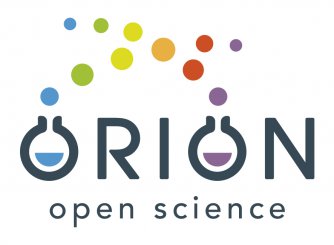Open science is a core strategy of the European Commission that involves widening participation and collaboration as well as sharing research processes and outcomes to improve research and innovation. All European Union members recognise the benefits of open science, but the transition to “openness” is challenging.
Interesting challenges
The ORION project will help research and funding organizations to understand existing challenges in Open Science and implement institutional, cultural, and behavioral changes in how they carry out and manage research.
“New models of working require novel cooperative approaches that engage lots of different actors, such as researchers, funders, publishers, patient organisations, citizens, students, teachers, or companies,” explains Michela Bertero, coordinator of the ORION project and responsible for International and Scientific Affairs at the Centre for Genomic Regulation in Barcelona, Spain.
“It is often difficult to open up fundamental research in life sciences and biomedicine to different stakeholders, particularly citizens, so the ORION project will be both challenging and interesting,” she adds.
Co-creation in academia
At the heart of the project will be open “co-creation” experiments that engage multiple stakeholders and explore different ways to make scientific research more participatory and inclusive. The experiments will tackle questions such as: how can research organisations receive input from a multitude of stakeholders? How can research funding be made more inclusive? How can public dialogue inform research policy and research content? How can citizens be involved in fundamental research projects?
We will organize, for example, open dialogues with multiple actors on controversial research topics and launch innovative projects on fundamental research that entail participation of citizens and different experts.
The results from the experiments will be developed into good practice and concrete actions that research and funding organisations can implement.
New ways of training and resources
ORION will also generate new training content for professionals working in funding agencies, to raise knowledge and awareness about Open Science and RRI, Responsible research and innovation. RRI is a concept helping organisations to incorporate the principles of ethics, gender, good governance, open access, public engagement, and science education in their policies, practices and processes. Focus will be on controversial research topics, e.g. animal research, genome editing, personalised medicine or stem cell research, and their medical applications.
Partners are committed to sharing lessons learnt and case studies with other organisations as well as developing a tailored action plan on Open Science and RRI for their own organisation. The project will result in a wide range of material, training, good practices, reports and publications that will be disseminated freely and widely across Europe.
ORION is a four-year project with a 3.2 million Euros budget funded under the European Commission’s Horizon 2020 programme. Partners in the consortium (see list below) represent a mixture of expertise in fundamental research in life sciences and biomedicine, social sciences, funding, science communication, public engagement, and civil society.
The project will be working closely with EU-LIFE, an alliance of top life science research institutes in 13 European countries.
About ORION (Open Responsible Research and Innovation to further Outstanding KNowledge)
ORION is a 4-year project that has received funding from the European Union’s Horizon 2020 research and innovation programme under grant agreement No 741527. This project addresses the Horizon 2020 call for “SwafS-04-2016” under the Science with and for Society Work Programme.
The project website is currently under construction: www.orion-openscience.eu
Partners
1. Fundació Centre de Regulació Genòmica (CRG), Spain
2. Masarykova Univerzita (MU), Czech Republic
3. The Babraham Institute (BI), UK
4. Max-Delbruck-Centrum Fur Molekulare Medizin In Der Helmholtz-Gemeinschaft (MDC), Germany
5. Instituto de Salud Carlos III (ISCIII), Spain
6. Vetenskap & Allmänhet (VA), Sweden
7. Universitat Autònoma de Brcelona (UAB), Spain
8. Jihomoravske Centrum Pro Mezinarodni Mobilitu, Zajmove Sdruzeni Pravnickych Osob (JCMM), Czech Republic
9. Fondazione ANT Italia Onlus (ANT), Italy
Associated partners
1. Building and Promoting Excellence in Life Science in Europe (EU-LIFE), Europe-wide
2. Helmholtz Association (HA), Germany
3. Biotechnology and Biological Science Research Council (BBSRC), UK
4. Neuron Fund for Support of Science (NEURON), Czech Republic
5. eLIFE (eLIFE), World-wide
6. European Citizen Science Association (ECSA), Europe-wide
7. BIOCAT (BIOCAT), Catalonia
8. Foster Platform (FOSTER), Europe-wide









